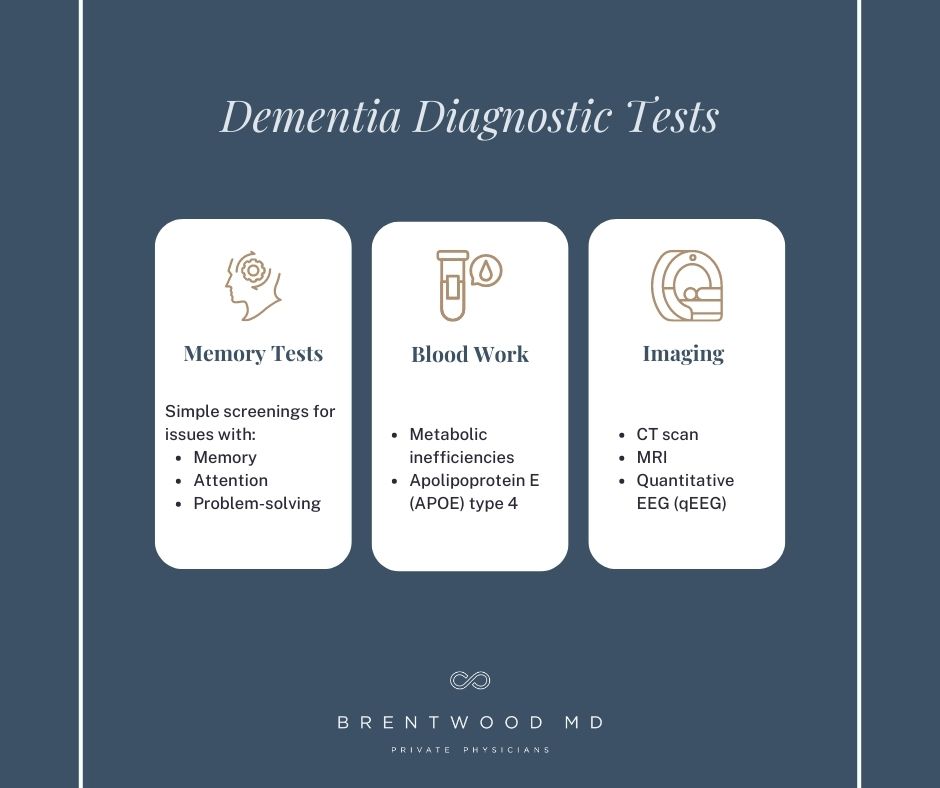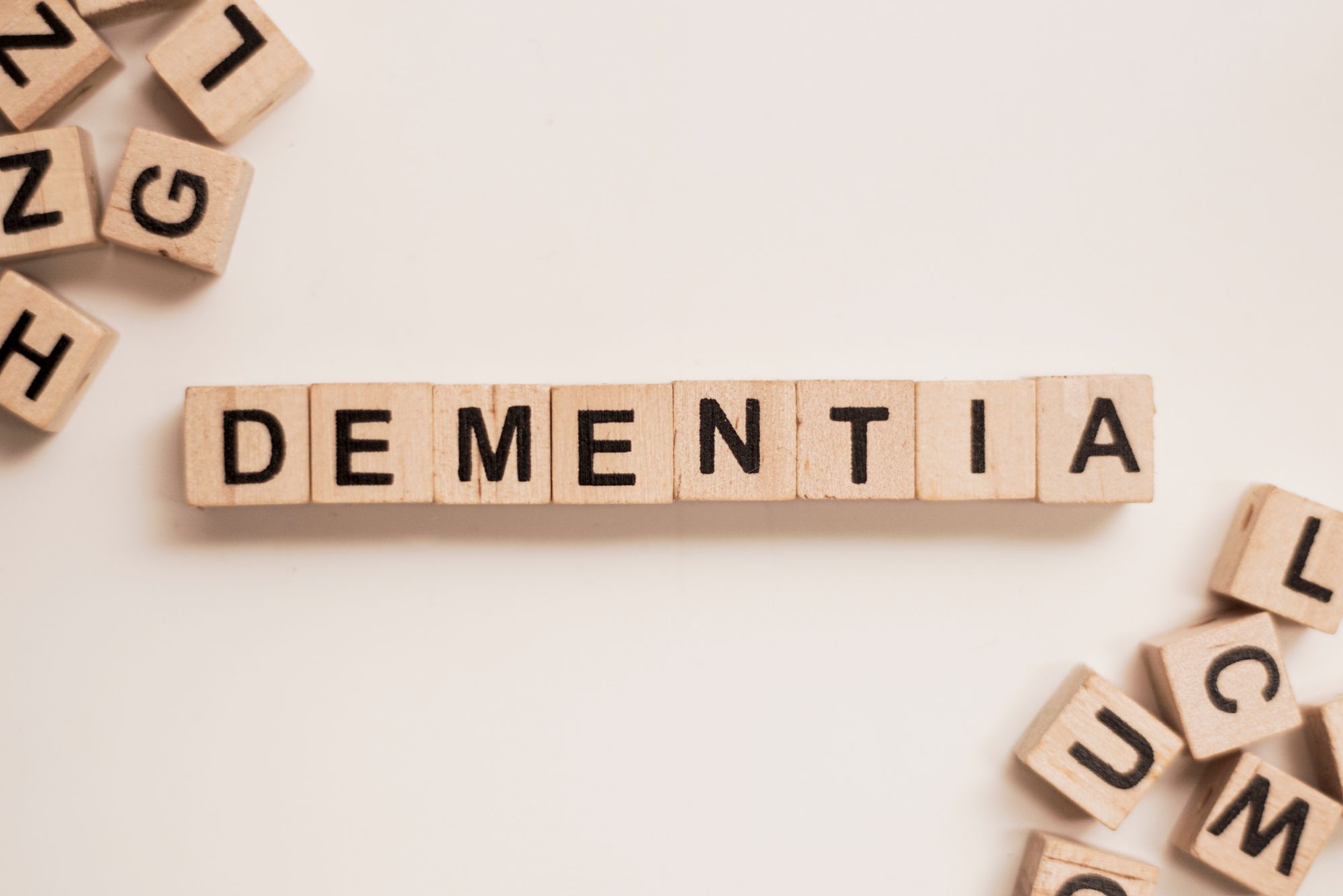Download file | Play in new window | |
For all of the amazing advancements we’ve made in medicine over the last few decades, we’ve experienced little progress in one crucial area: dementia, and especially Alzheimer’s dementia.
Scientists thought they were onto something for years, chasing plaques and tangles in the brain. But those turned out to be a red herring — more likely a result of the underlying disease, not the cause. And now we’re back to square one.
In some cases, certain therapeutics can prevent or slow dementia advancement, but nothing reverses it, and nothing cures it. So we’re left to double down on the only play we really have, which is something we often mention — going on the offense.
In our podcast this month, Jen Justus and I tackle this topic not to help people become dementia experts — because even the experts are still confused. Instead, we wanted to provide some framework for how to think about this important topic, information about what dementia is, and how we diagnose it using dementia diagnostic tests. We also outline some actions you can take to field a strong offense against the onset of dementia, as well as many other diseases.
What Is Dementia?
Dementia is the seventh leading killer of humans on this planet, with some authorities believing the numbers may be even higher.
Dementia isn’t so much a specific disease as it is a generalized term to describe an impaired ability to remember things or make decisions. This frightening disease steals loved ones away, cruelly forcing family members to watch as the sufferer loses their relationships, their history, and their identity.
When we think of dementia, we often think of elderly people who can’t remember loved ones’ names or who repeat the same things over and over again. But it’s more than forgetting names and repeating stories. It’s an inability to reason or retain new information. Dementia impairs the basic activities of daily living. It can lead to falls, wandering, getting lost, forgetting medications, or even forgetting to eat. It can lead to death from something seemingly trivial.
Types of Dementia
It’s important to note that dementia isn’t the same as age-related memory loss. Normal, age-related memory loss includes things like misplacing your keys or searching for your glasses while they’re on top of your head. Your short-term memory suffers, but you can still recall details from 20 or 30 years ago.
Some confusion can come in because both age-related memory loss and dementia occur most often in older populations. But while age-related memory loss is common and a fairly normal part of aging, there’s nothing normal about dementia.
The most common type of dementia by far is Alzheimer’s dementia, accounting for 60–80% of dementia cases in the U.S. Many of us know of someone who’s been affected by Alzheimer’s, either directly or indirectly.
The second leading type of dementia is vascular dementia at about 10% of cases. When you have high blood pressure, diabetes, and/or heart disease, small blood clots can get stuck in your brain tissue, causing strokes or mini-strokes. Small strokes might not even be noticeable, but they can cause cell death in the area surrounding the blood clot, which can build up and result in vascular dementia.
Lewy body dementia, which includes Parkinson’s disease, is the third most common type of dementia. It results from a buildup of abnormal proteins, or Lewy bodies, in nerve cells in the brain and can cause confusion, trembling, stiffness, movement and balance problems, and even vivid hallucinations.
What Are the Risk Factors for Dementia?
While we haven’t developed a cure for dementia and don’t know exactly what causes it, we do know some of the risk factors. This can help you understand if you or your loved ones are at risk of developing dementia, and whether you can take action to prevent or delay its onset.
Age. Dementia isn’t part of the normal aging process, but age is the greatest known risk factor. The longer you’re alive on this planet, the greater your risk of developing every type of disease. Dementia, particularly, tends to hit people after age 65.
Family history. Another major dementia risk factor is family history. If you have a parent or sibling who developed dementia, you’re at greater risk of developing the disease as well. This is a great reason to know your family history when possible.
Race. Dementia rates are highest among African Americans and Hispanics, which means race is one non-modifiable risk factor we have to consider.
Metabolic disease. Now that we’ve gotten away from the old thinking about plaques and tangles in the brain, research is starting to build a case for dementia as more of a metabolic issue. Some are even considering it a kind of type 3 diabetes, or insulin resistance at the level of the brain. So metabolic issues like high blood pressure, heart disease, obesity, high cholesterol, and/or high blood sugar all put you at risk of developing dementia.
Dementia Diagnostic Tests and Screening
While we’d love to give you a laundry list of new and exciting breakthroughs in dementia diagnostic testing, those unfortunately don’t exist. Research is ongoing, but in the meantime, we can look for certain markers to warn us that dementia might be on the horizon. They’re not a smoking gun, but they can start building a compelling case, providing evidence for systems that aren’t functioning as well as they should. Early indicators help us go on the offensive and slow any disease that does appear.
 Memory Tests
Memory Tests
One simple screening we can do in the office is to test for issues with memory, attention, and problem-solving. These iPad-based tests only take a few minutes to complete and are great for both establishing a cognitive baseline and flagging any concerns.
So even if you show no issues initially (which is fantastic), your doctor can watch for any drop in acuity year over year. It’s not a definitive dementia diagnostic test; you could simply have a lot going on in your life that year. But it could also be a sign of early disease, so it’s an indicator that attention is warranted.
Blood Work
Because dementia seems to be closely related to metabolic disease, it’s important to test all the usual suspects for metabolic efficiency: lipid panel, LDL particle number, fasting insulin, fasting glucose, and triglyceride/HDL ratio. The sooner you find out you’re metabolically inefficient, the sooner you can take action and avoid a whole list of diseases, most of which fall among the top killers of humans.
One of the best blood tests in screening for dementia is the apolipoprotein E (APOE) genotype. An APOE test evaluates your DNA to see which form of the APOE gene you have. The form we’re interested in is type 4, or APOE e4, which is associated with a higher risk for early-onset Alzheimer’s (and early onset cardiovascular events).
Again, this isn’t a smoking gun. Not everyone with APOE e4 genotype develops dementia (or a heart attack). But it is a significant risk factor you can identify so that you and your doctor can determine a plan of action to prevent or delay the onset.
Imaging
If you’re experiencing cognitive problems or are off on your baseline thinking, an initial imaging test like a CT scan or an MRI can help us rule out a brain tumor or stroke. A further imaging test called a quantitative EEG (qEEG) measures brain waves and can determine if you have an issue like a seizure disorder.
A special type of CT called a SPECT scan uses a radioactive particle in dye to create a 3D image of the brain structures, both internally and externally. We can evaluate the health of the brain by comparing these images to images of brains with certain diseases, such as dementia.
In many major markets across the country, you can now find brain health centers that focus specifically on brain issues and operate outside of insurance and standard healthcare operating procedures. They offer full workups, including brain scanning, and help you develop cognitive improvement strategies based on their findings. We don’t know too much about these centers yet, but they could offer a more handcrafted and thoughtful way to focus on brain health.
Take Action Against Dementia
If you’ve been following us for a while, you’re familiar with the concept of health multipliers. They’re positive changes that beget other positive changes and include things like intermittent fasting, regular exercise, healthy sleep, and stress management. Health multipliers can add quality years to your life and add to your arsenal in the fight against humanity’s top killers.
Since we’re finding more evidence pointing to dementia being related to metabolic disease, there are changes you can make starting today that will put you on the offense.
Find Your Team
One of the most important things you can do to take an offensive approach against dementia is to find your team. This is a professional team who will listen to you and your concerns and help coordinate a plan to help you live the healthiest life possible.
Many of us have been stuck in a system of sick care, not health care, for years. If your current team isn’t addressing your health concerns, then find one that will. By taking this step, you take ownership of your health and future.
Modify the Modifiable
Another important step is to identify and modify your modifiable risk factors for dementia. This comes from knowing your numbers from assessments like body composition, waistline, blood pressure, blood lipid panels, fasting insulin and glucose, and taking action you need to take to modify any high-risk factors. Often, you can make big strides in lowering your risk for disease with strategic lifestyle changes.
Manage What You Can’t Control
Not all risk factors are within your control, including age, race, family history, and genetics. You may not be able to modify these risk factors, but you can incorporate them into your thought process and awareness, and you can implement strategies to manage these risk factors in coordination with your healthcare team.
Don’t Let Fear Prevent Action
In the face of such a difficult and incurable disease, some people may not want to know their risk factors. They may prefer to avoid thinking about it and hope they get lucky.
If there were absolutely nothing you could do about dementia, this might be a good strategy. But you can take action, so it’s important to live with your eyes open. Note your non-modifiable risk factors. Get the dementia diagnostic tests that can inform your lifestyle choices, and take steps to address your results.
It’s normal to feel some fear about dementia. I would just encourage you not to let that fear cripple you. Instead, co-opt it to head off the very thing that frightens you. Let it motivate you to do one thing today that will serve you long-term. Don’t let fear keep you on the sidelines. Leverage fear in your favor and let it lend force to your offense.

Dr. Aaron Wenzel is a concierge physician specializing in the care of fast-moving entrepreneurs, executives, and public figures in the Nashville, TN area. Dr. Wenzel’s diverse life experience and extensive training in family medicine, emergency care, nutrition, and hormone replacement therapies give him the unique platform to provide unmatched care for his patients.







